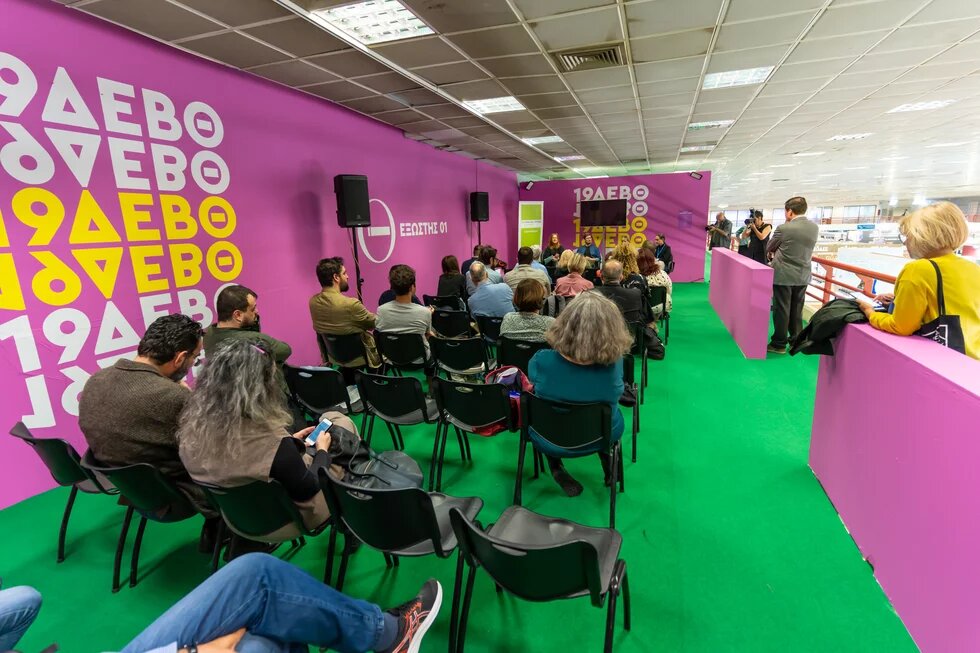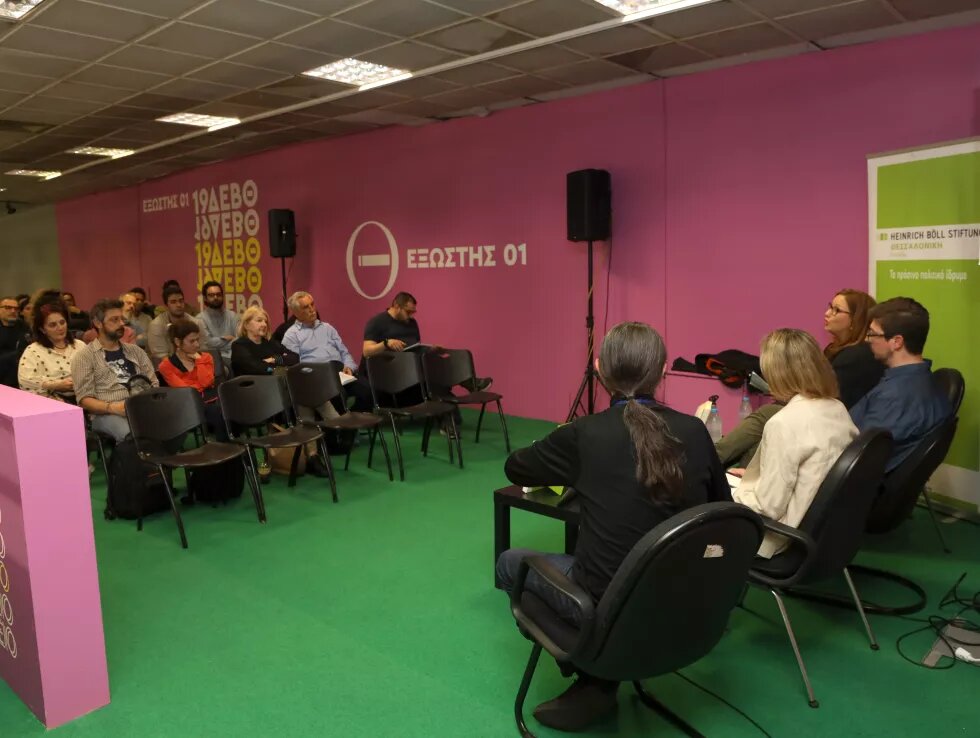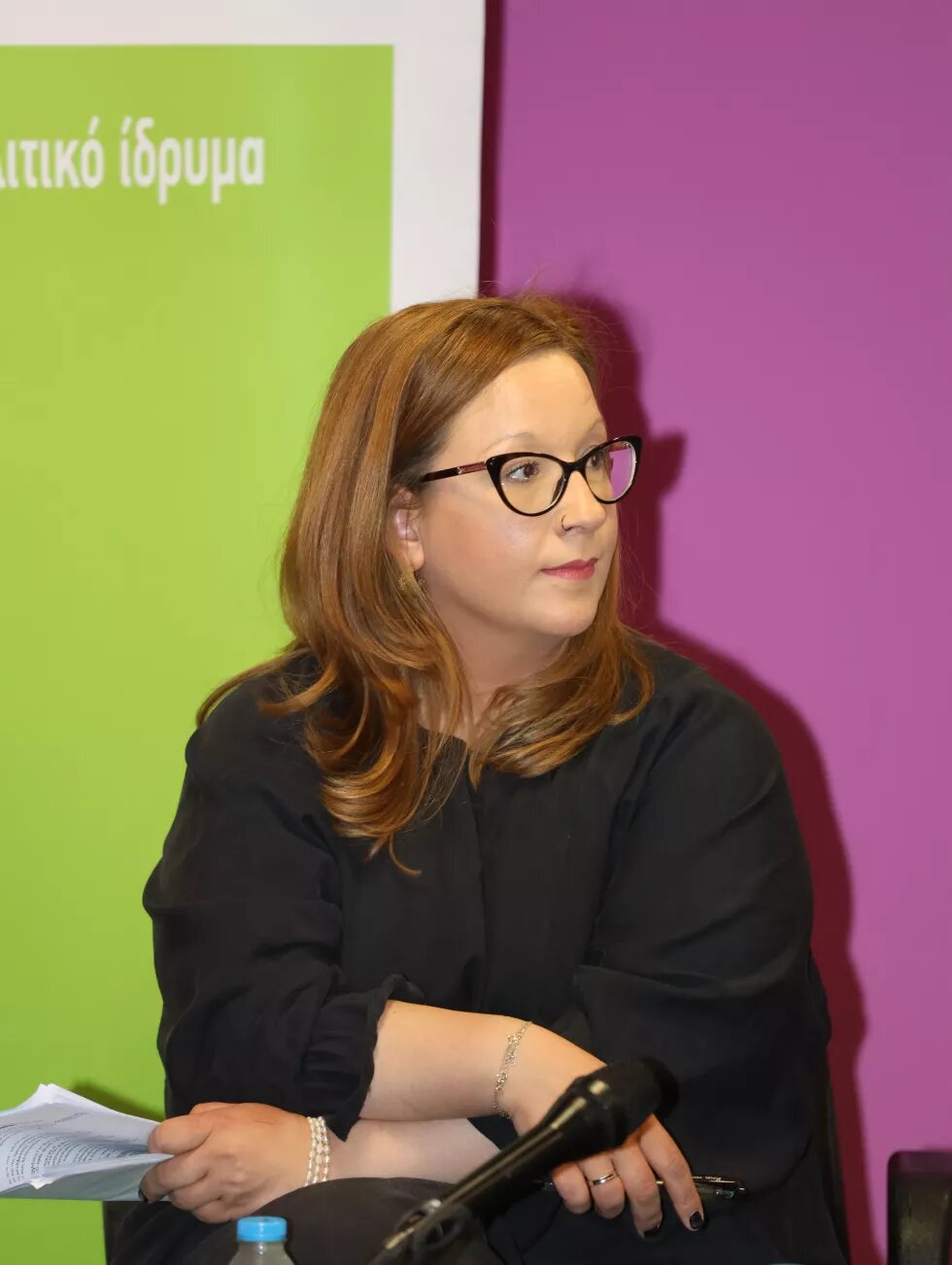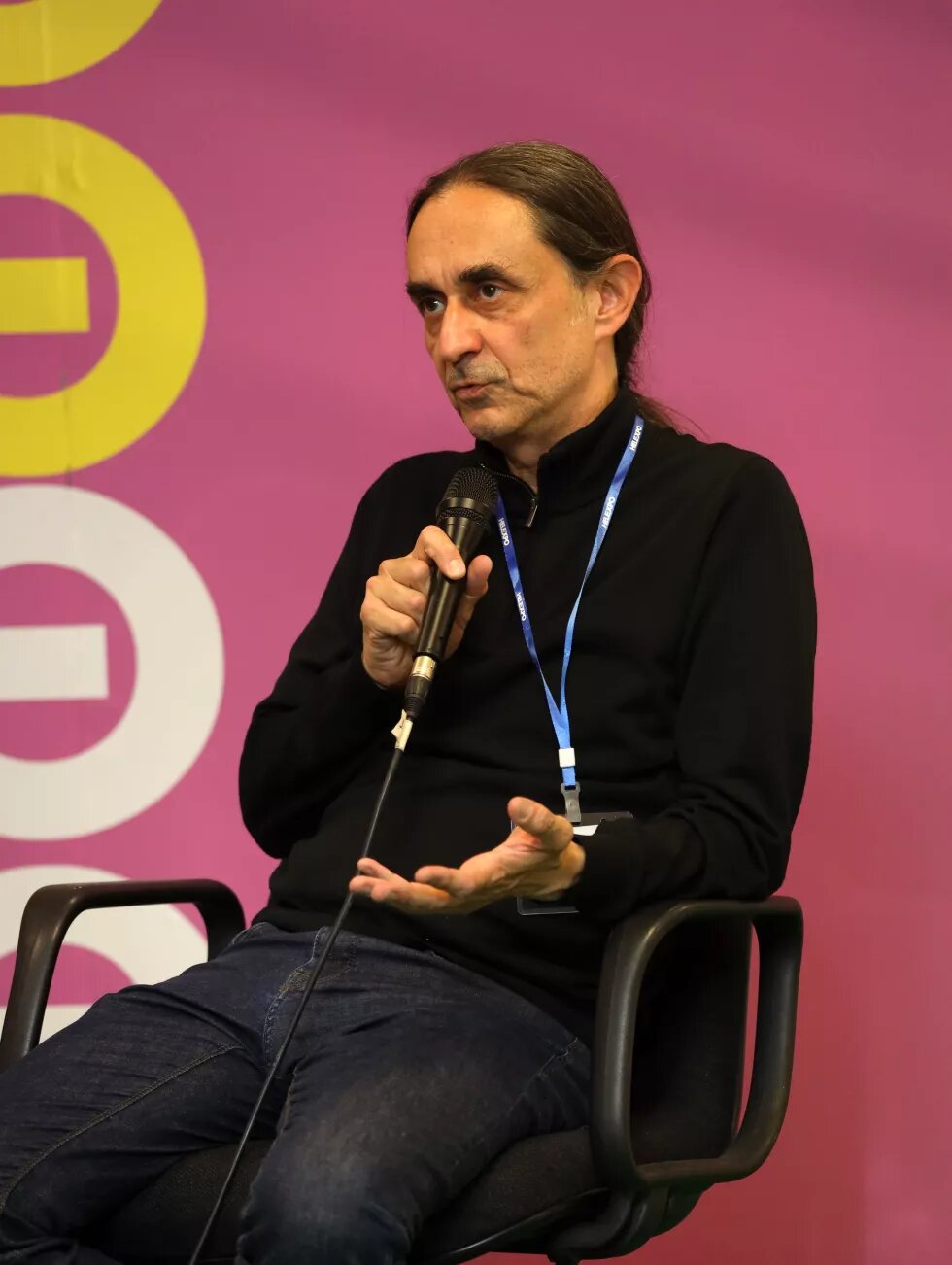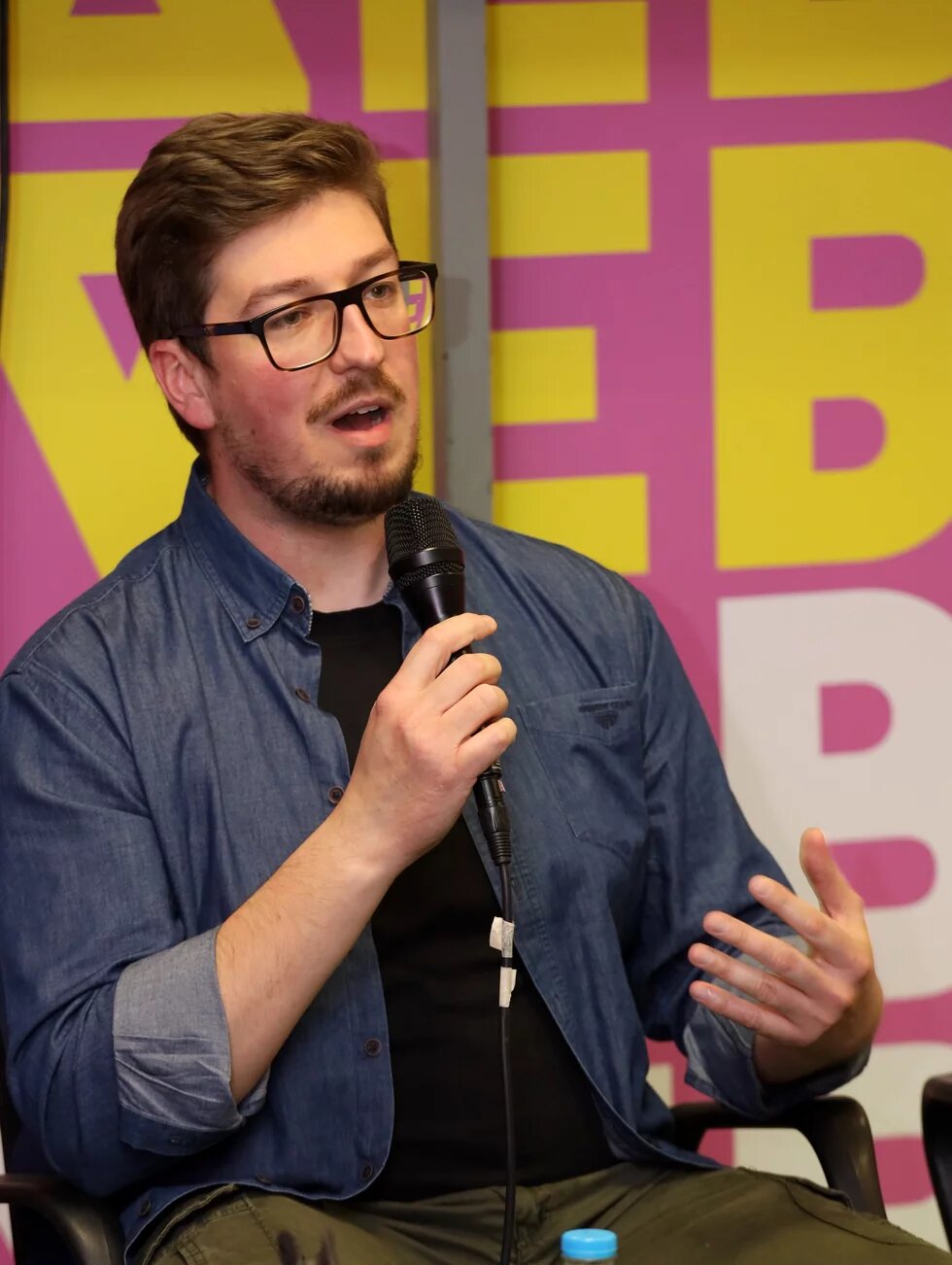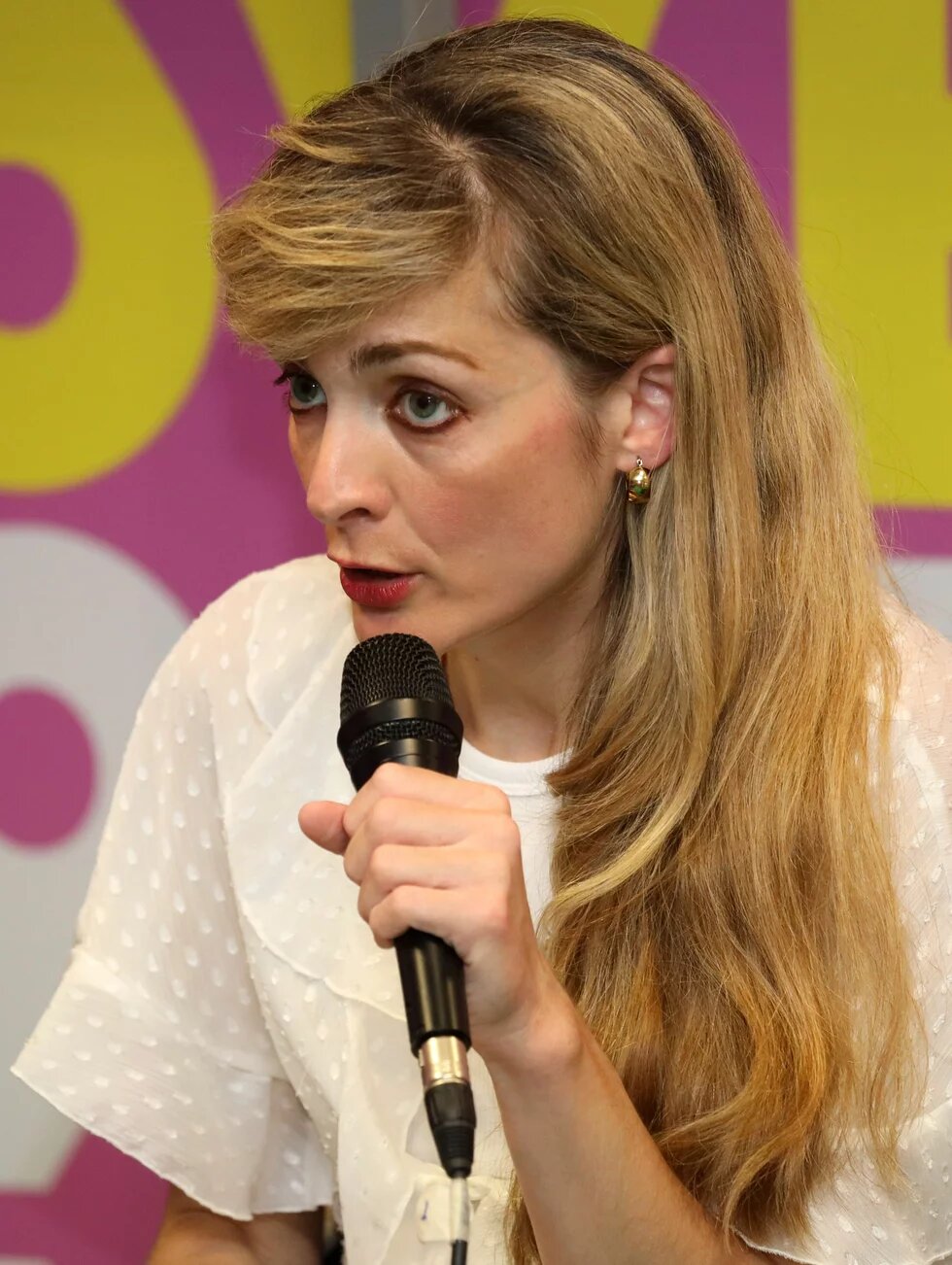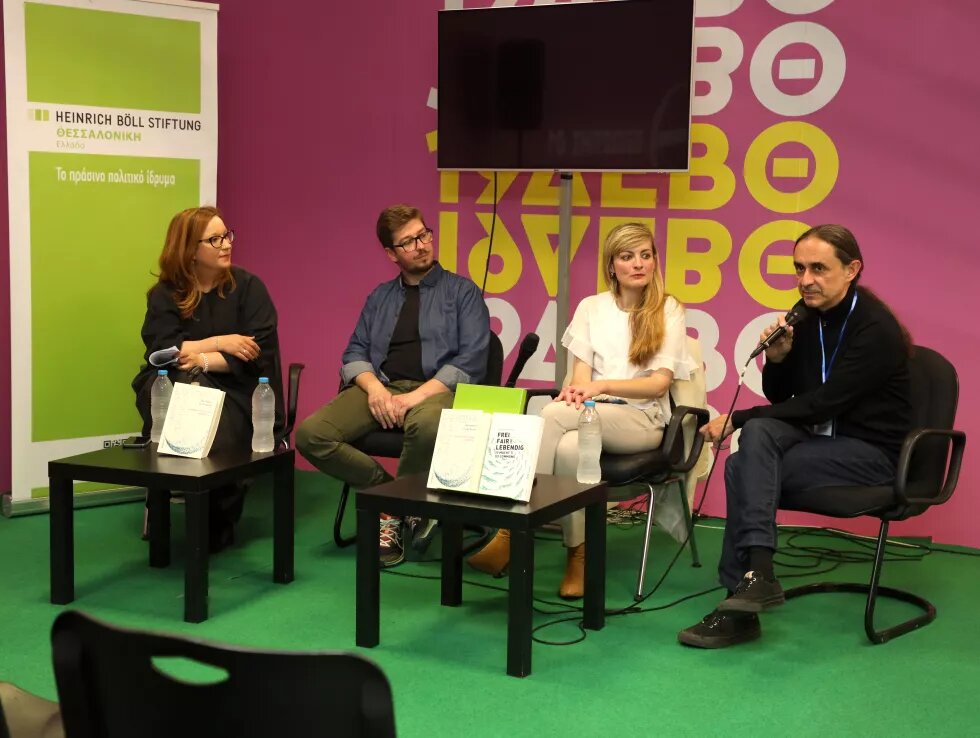
The book “Free, Fair, and Alive: The Insurgent Power of the Commons” by Silke Helfrich and David Bollier was presented by the Heinrich Böll Foundation-Thessaloniki Office and the Goethe-Institut Thessaloniki, in cooperation with Nefeli Publishing House, at the 19th Thessaloniki International Book Fair on Friday, May 5, 2023.
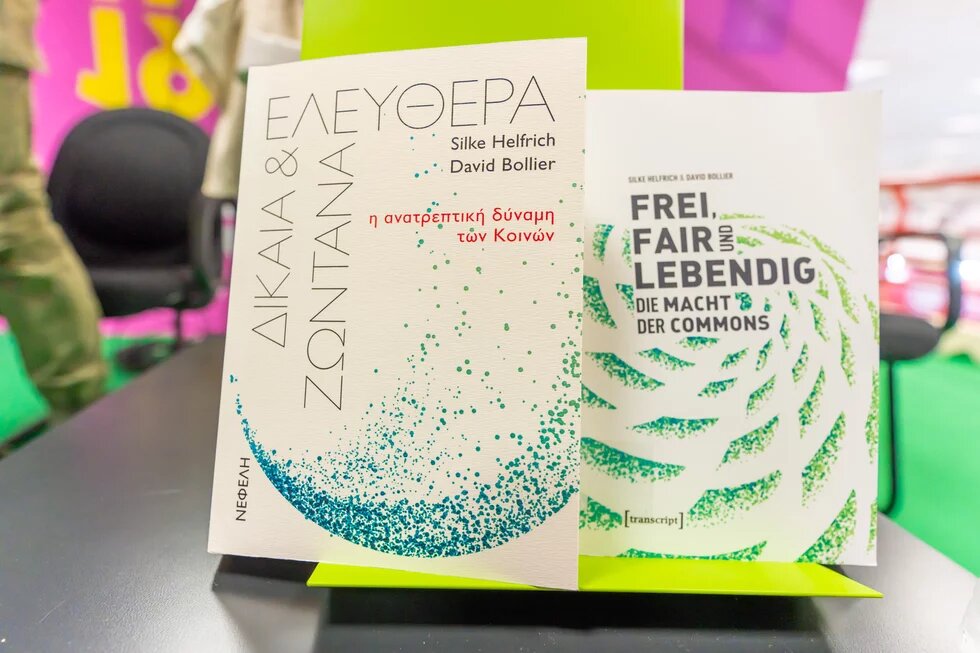
At the beginning of the presentation, journalist and moderator of the discussion Eugenia Hadjigeorgiou pointed out that this publication is an attempt to synthesise and expand theory and praxis around the commons. She also added that the translation of the book itself is an example of the commons, as it was made thanks to the formation of a group of translators and activists who worked in a self-organised and collective manner, precisely on the principles and practice of the commons.
“Open access publishing is a one-way street for some types of books”
The editor of “Nefeli” and owner of the Fairead platform, Pericles Douvitsas, spoke about his participation in the publication and his relationship with the commons. Describing how he became involved in the publication of the book, he said that “the Goethe Institute approached me for this publication because they saw that I was interested in the subject area”, as “for many years I have believed that open access publishing is of great interest, especially for languages like Greek, and maybe one day we will see that for some types of books it is a one-way street”.
“I was very happy to accept because I also wanted to see what would happen when we move on, when we move from theory to praxis, with a book that is big, expensive, and difficult, but which, precisely because it talks about technical things, is a tool for the commons. It is the ideal starting point to see if and how something like this will work in Greece”, said Mr. Douvitsas.
As he announced, the interest in the book is great, as from the announcement of its publication, professors at the University of Thessaly, Volos, were interested in it, and it is already being distributed to their students, something that highlights its usefulness. In fact, the book will soon be freely available online in Greek, as well as in English and German.
On a more personal level, the editor of “Nefeli” referred to his relationship with the commons. For the past years, he has been residing in Tinos, an island currently facing severe problems related to tourism and the destruction of the landscape, the organisation of the place, and the ecological, social, and economic balance.
“The residents there need to organise to be able to support and demand that certain things are done for life on the island. The first thing we realised when we tried to have a collective discussion was that we didn’t have any tools on how to organise ourselves and talk to each other. This book gives us theoretical and practical tools with examples”, he stressed.
“A book of philosophy with an ultimate goal of praxis”
PhD candidate in Political Science and Sociology Aliki Kosyfologou, who is a member of the publication’s translation team, spoke about the formation and operation of the team.
As she pointed out, the book is a guide for the study of the international experience of the commons in open dialogue with the theory and problems posed by radical politics. “Silke Helfrich and David Bollier’s rich and diverse text explores viable ways of implementing alternative economic models based on democracy, equal participation, and respect for the environment”, she noted.
In reference to the two authors’ introduction, which emphasises that the book can be viewed or even serve as a manual for learning practices “that go beyond the usual ways of thinking, speaking, and behaving”, Ms. Kosyfologou added that “it is a guide to training in a new understanding, in a new political culture that challenges the dominant terms of social coexistence”.
At the same time, Ms. Kosyfologou referred to the translation team consisting of Alexandros Schismenos as team coordinator, Nicolas Kanavaris, Yannis Perperidis, Margarita Pita, Dimitra Tsoli, and Lina Filopoulou, while the process was supported by the Goethe Foundation and the translation was also supported by P2P Lab. The contribution of Nikoleta Stathopoulou, Director of Information and Library Services at Goethe, was crucial to the process.
“All those who formed the translation team contributed their experience and knowledge from their practical, theoretical, philosophical, and activist work in the commons fields, such as the environment, feminist issues, solidarity economy, etc. In other words, even if some of us had previous experience as translators, we did not contribute to the process as such. The composition of the translation team also reflected the philosophy of the two authors in terms of transcribing the terms and philosophy of the book into another language”, Ms. Kosyfologou went on to say.
Simultaneously, she emphasised the fact that the project of the collective translation was largely determined by the conditions of constraints and distance imposed by the pandemic, as well as by the untimely death of Silke Helfrich. “With Silke, we had the pleasure of holding two extremely fruitful working meetings, which also served as the basis for the translation work that we subsequently carried out,” she pointed out.
“This book is a philosophical book, the fruit of the two authors’ long philosophical, theoretical-political, and activist engagement with the commons. It is a profound textbook of the commons with rich theoretical references to political philosophy, Marxism, social theory, and political economy. It is a philosophical book with the ultimate goal of praxis,” concluded Ms. Kosyfologou.
“There is no existence without coexistence”
Alex Pazaitis, a researcher at Tallinn University of Technology and member of the P2P Lab, talked about the involvement of the P2P Lab team in the translating process of the book and his own relationship with the commons.
“We are trying to survive in this world by creating a new world where we would like to live. We have a little bubble, as both authors describe, with a translucent membrane that allows some things to pass and some others not”, he commented at the beginning of his intervention, while inviting the audience to reflect on their own relationship with the commons.
“I had the misfortune of starting my career as a consultant. I was writing, reading, and listening to a lot of people mention the word value in a way that we all supposedly understand what it means. But I quickly realised that no one understood, that it was something normalised, and that we were reproducing it. I decided to start dealing with this problem, meaning to understand what value is. Along the way of my PhD, I found P2P Lab (an interdisciplinary research collective focused on the commons and technology), which was my transition from the world of consulting to the world of the commons”, he noted.
“Most people perceive value as price—a dead and morbid dimension. I started to view value in a different way. The help of the two authors was extremely important. They have opened this window, through which I could see the world differently. I abandoned the narrow perception that saw value solely through markets and realised that value is also a common, in the sense that it is the material that connects us and makes us interact with each other”, he said, adding that this material (value) “has become as invisible as water is to fish. We are so surrounded by it that the only time we recognize its existence is when it starts to crumble”.
Indeed, as Mr. Pazaitis remarked, “in the pandemic we stopped interacting with the world in the way we had before, and we realised that social life was becoming less and less valuable everyday. This was reflected in the national accounts, and it’s not by coincidence that we had a recession. You can’t have a functioning society and a functioning state if you don't have this healthy layer of social value around those two things”.
“That’s what we’re trying to do at P2P Lab: explore together the material that connects us when we do research and see what impact it has on society. We’re looking at how we can produce value together. There is no existence without coexistence”, he concluded.
